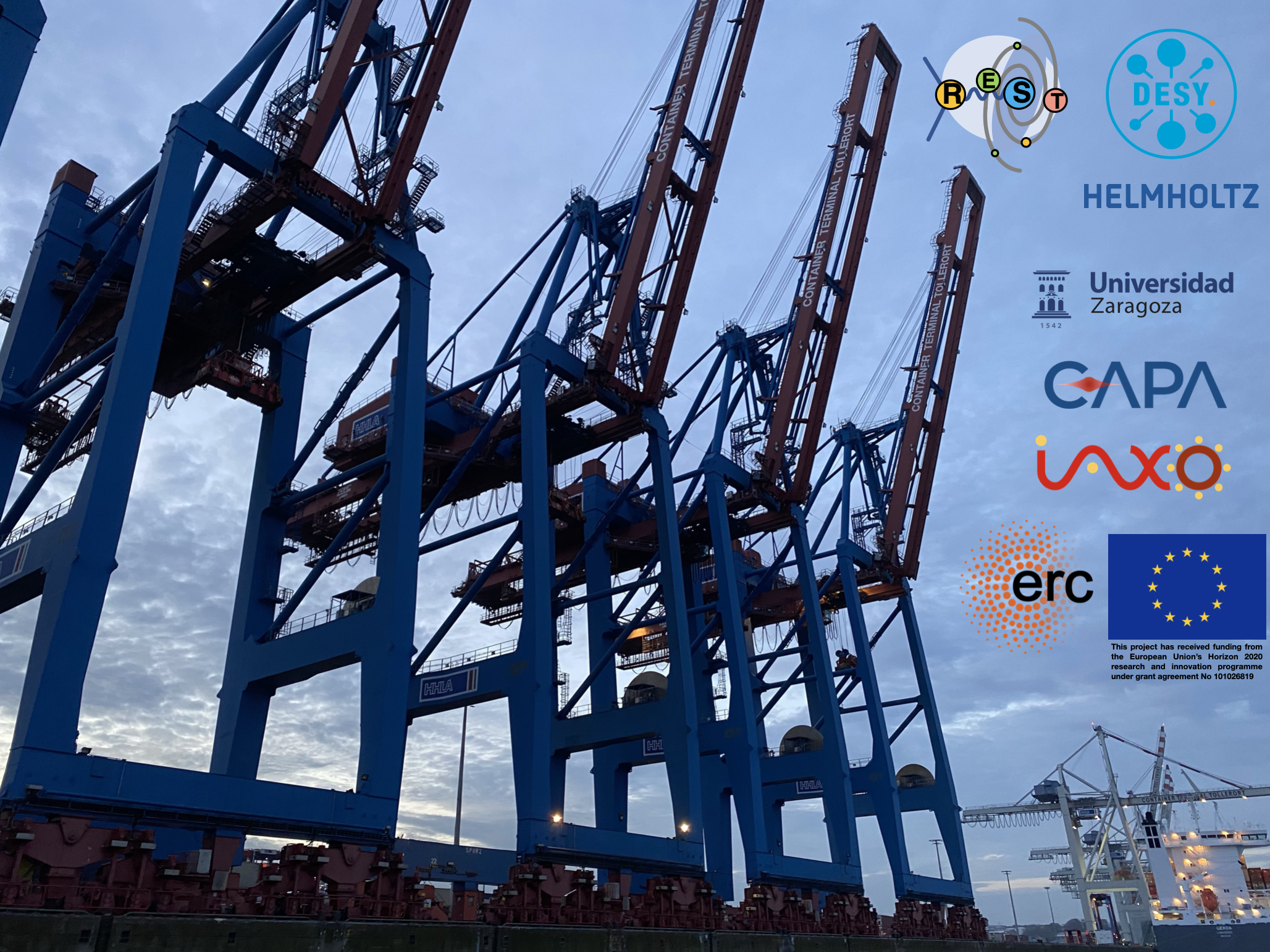Due to a too low number of (in-person) participants, the school is unfortunately cancelled. Sorry for the inconvenience. Another edition of the school is planned for the near future. Stay tuned - We will keep you informed!

The REST-for-Physics (Rare Event Searches Toolkit) Framework is a collaborative software effort that provides common tools for acquisition, simulation, and data analysis of gaseous Time Projection Chambers (TPCs). REST-for-Physics was conceived at the University of Zaragoza and it is intensively used in academia by undergraduate, master and PhDs students for thesis preparation. It is also used for generic R&D, and it has been adopted by experiments like IAXO, TREX-DM or PandaX-III to assist on the data processing and storage of official experimental data.
This school edition @ DESY will provide a general overview of the different capabilities of the framework through interactive sessions. During the course we will go through basic examples that will allow us to reproduce some of the common tasks performed during data processing, storage and analysis.
In order to be able to follow the course efficiently, participants are required to have a basic knowledge of programming languages, such as python or C, certain programming experience (having written your own pieces of code) is also highly recommended. REST-for-Physics is written in C++, and therefore having previous knowledge of the basic concepts of C++ is mandatory.
If you have previous coding experience in C or python, it will suffice to study the main C++ concepts at the following NIST C++ course for scientists.
REST-for-Physics uses ROOT and Geant4 packages. Previous knowledge of those packages is an advantage to take maximum profit from this course.
This event is the second edition of the REST-for-Physics training school effort. The first edition took place at the university of Zaragoza, 23-27.01.2023, see: https://indico.capa.unizar.es/event/26/
The school is primarily planned as an in-person event. The possibility of remote participation is currently evaluated. At the moment there are multiple options with respect to hardware and software to be able to participate in the school:
- Best case: You bring your own notebook with your own working local or NAF REST-for-Physics installation (latest official release) + required packages.
- You bring your own notebook with a working eduroam WIFI connection and a ssh-capable shell in order to be able to login to the NAF. NAF-guest-accounts will be provided, which allow access to a pre-installed REST-for-Physics version and required packages.
- A few guest-laptops with NAF access will be available for participants, which can not bring their own device.
![REST-for-Physics Training School @ DESY [CANCELLED]](/event/37106/logo-3351851006.png)
